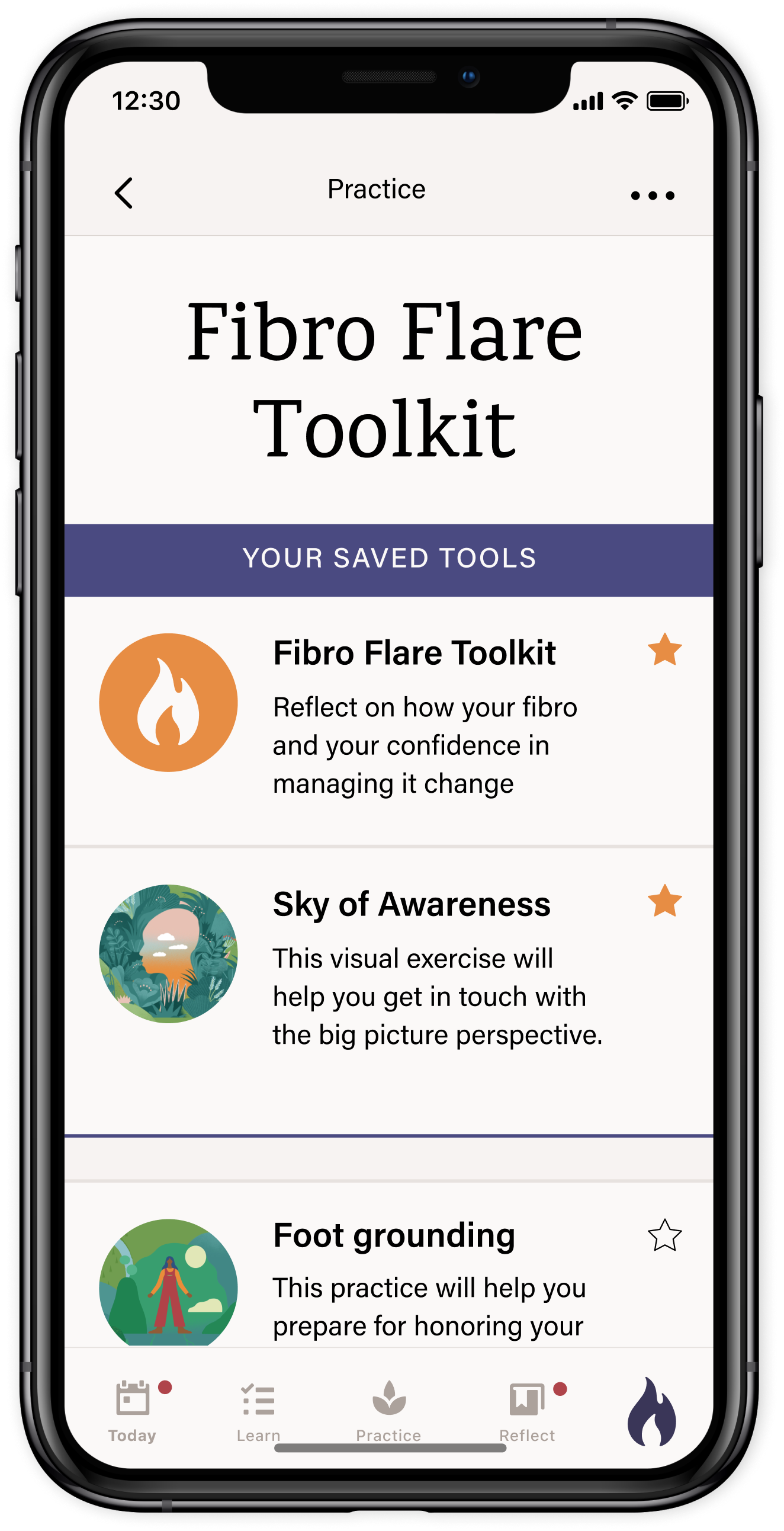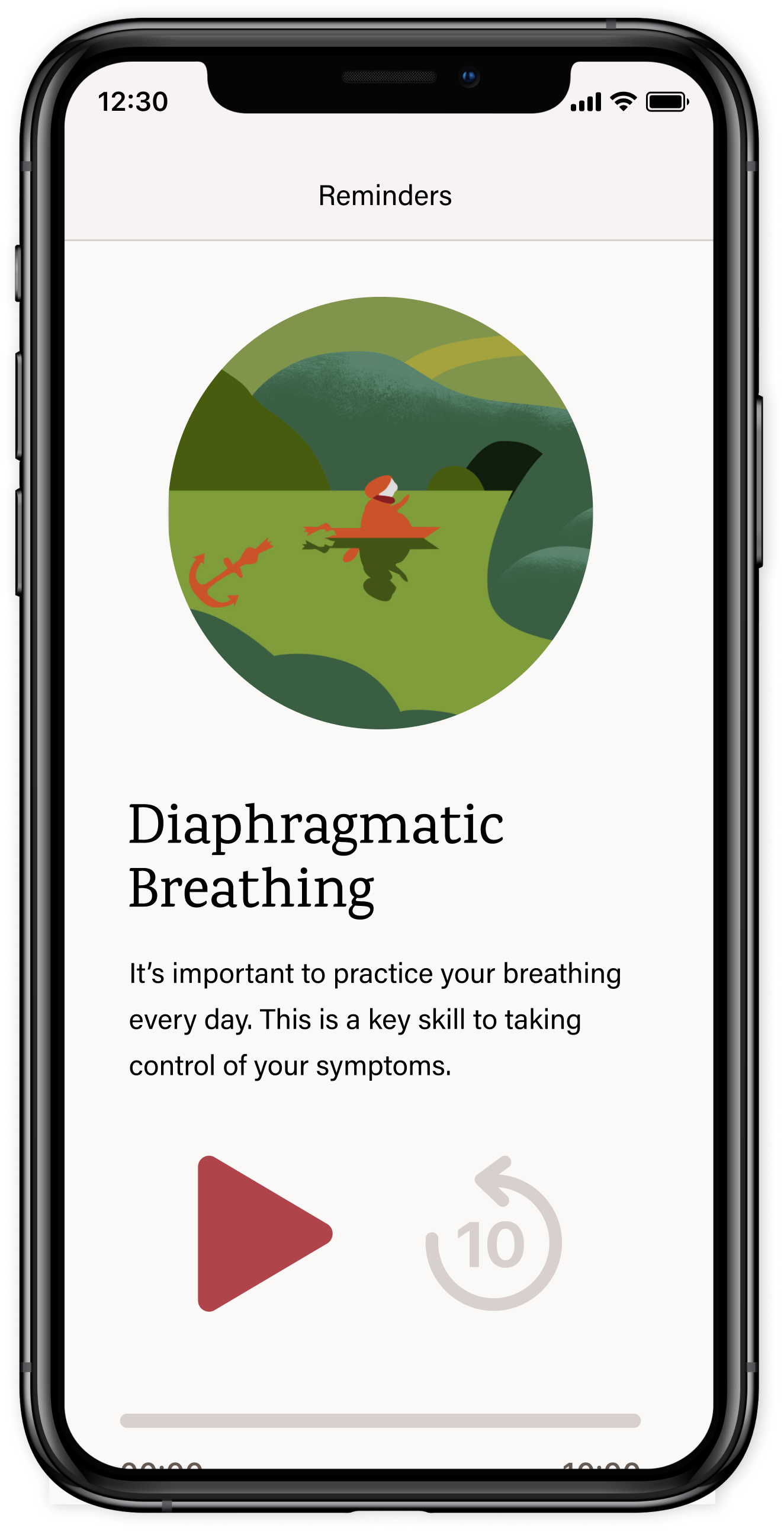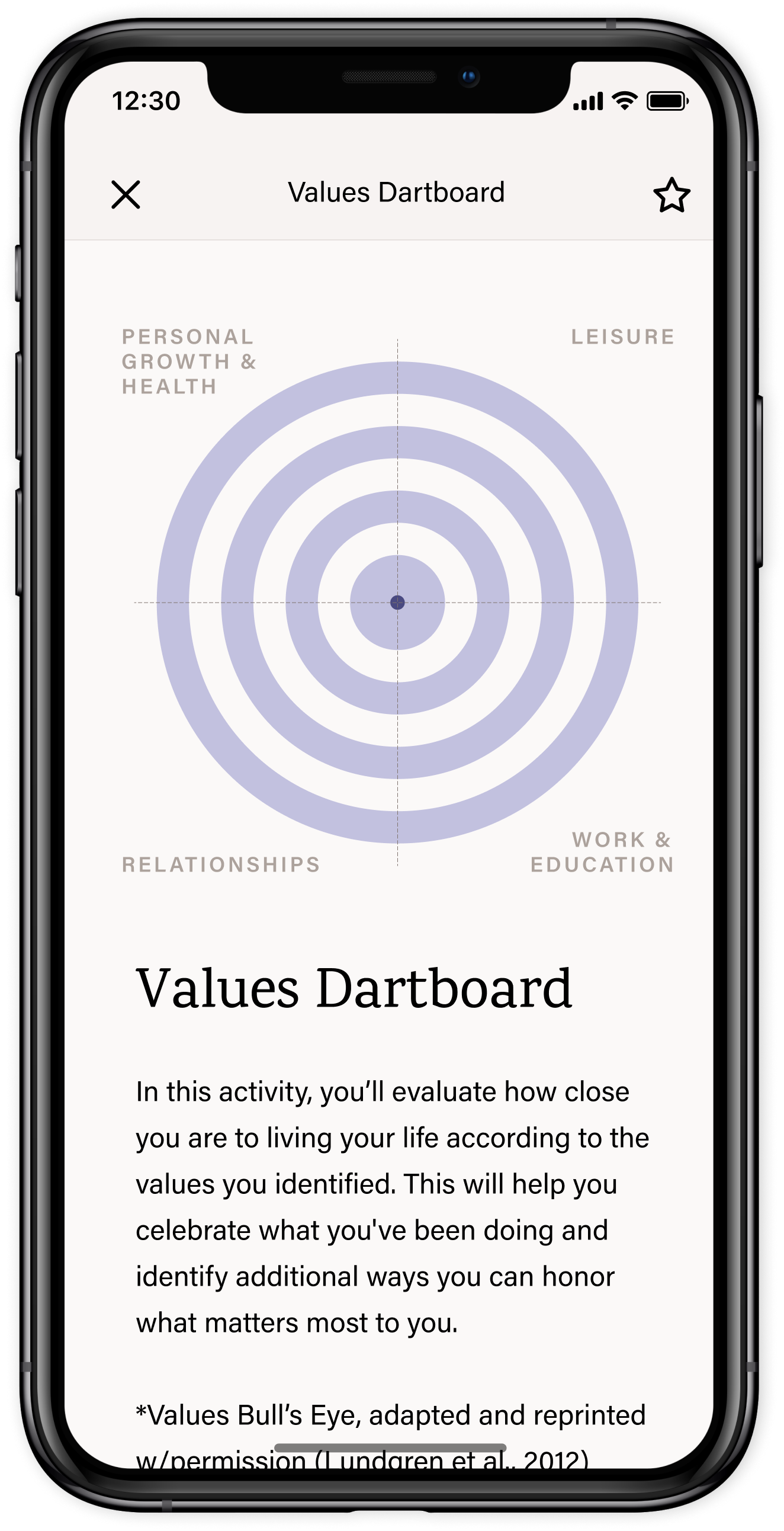
Study: Mobile app therapy leads to significant improvement in fibromyalgia management
Clinical trial results published in The Lancet
New research led by the University of Cincinnati and Swing Therapeutics found that a self-guided smartphone-based behavioral therapy led to significant improvements for patients with fibromyalgia.

Lesley Arnold, MD. Photo/University of Cincinnati.
The multicenter, randomized controlled trial tested Stanza, a smartphone app that delivers acceptance and commitment therapy (ACT), a type of cognitive behavioral therapy recommended by international clinical guidelines for fibromyalgia management, with the results of the study published July 8 in The Lancet.
Fibromyalgia is a chronic pain condition that affects an estimated 10 million Americans, a majority of whom are women. The condition is characterized by widespread pain and other physical and cognitive symptoms that include fatigue, disrupted sleep, reduced physical function, memory problems and difficulty concentrating (“brain fog”). It is often accompanied by anxiety and depression.
The Phase 3 PROSPER-FM trial clinically validated Stanza’s benefits, including improvements in well-being, fibromyalgia severity and major fibromyalgia symptoms, including pain intensity, pain interference, fatigue, sleep disturbance, depression and physical function. This study is the largest medical device study for fibromyalgia ever undertaken.
“For millions of people with fibromyalgia, this study, published in The Lancet, describes a new and effective therapy for fibromyalgia,” said Lesley Arnold, MD, study principal investigator and professor emerita at the University of Cincinnati College of Medicine. “This novel, non-drug therapy, available using a smartphone, makes management of fibromyalgia more accessible and convenient. This offers new hope for people with fibromyalgia, who have continued to experience unmet treatment needs.”
In the 12-week trial, 275 participants were randomized to receive either Stanza treatment or a digital symptom tracker control. At week 12, 70.6% of participants in the Stanza arm reported an improvement on Patient Global Impression in Change, which measures patient well-being.
Above: Screenshots of the Stanza app that guides patients with fibromyalgia through various evidence-based acceptance and commitment therapy activities. Photos provided by Swing Therapeutics.
Stanza also exhibited statistically greater improvement compared to the control on fibromyalgia-related symptoms, function and impact, as well as pain intensity, pain interference, fatigue, sleep disturbance and depression, with no treatment-related adverse events observed.
“Fibromyalgia options are typically limited to a handful of pharmacological interventions that have limited efficacy and that can come with difficult-to-manage side effects,” said Mike Rosenbluth, CEO of Swing. “This publication validates Stanza as a guideline-directed non-drug approach that many patients previously couldn’t access due to few available trained clinicians, geographic limitations and cost.
Impact Lives Here
The University of Cincinnati is leading public urban universities into a new era of innovation and impact. Our faculty, staff and students are saving lives, changing outcomes and bending the future in our city's direction. Next Lives Here.
Featured photo at top: A person holds a phone displaying the Stanza app. Photo provided by Swing Therapeutics.
Related Stories
Putting control in patients' hands
February 6, 2024
A new University of Cincinnati trial, in partnership with Spark Biomedical, will test a wearable neurostimulation device to help patients with opioid use disorder and post-traumatic stress disorder stick with medication treatment while finding the right dose.
UC, Children's join $20 million statewide research effort
August 16, 2024
The Cincinnati Business Courier highlighted the University of Cincinnati and Cincinnati Children’s being part of a collaborative research initiative designed to identify the root causes of the ongoing epidemic of persistent emotional distress, suicide and drug overdose in the state of Ohio.
Cape Girardeau, Missouri news highlights UC clinical trial
February 20, 2024
KFVS-TV in Cape Girardeau, Missouri highlighted a University of Cincinnati clinical trial testing a wearable neurostimulation device to help patients with opioid use disorder and post-traumatic stress disorder stick with medication treatment while finding the right dose.



